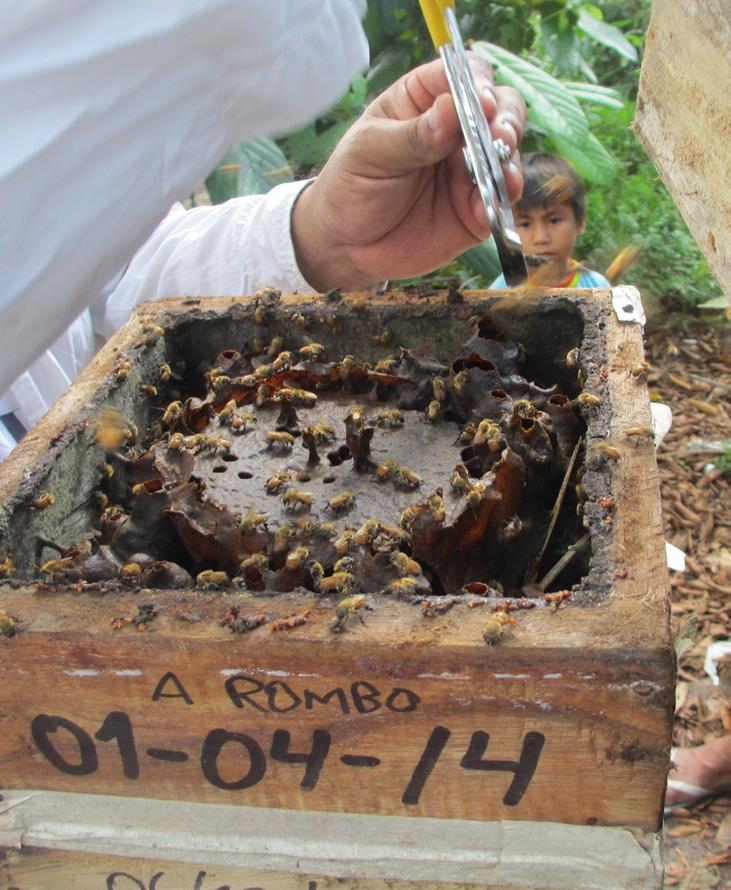
1 minute read
News around the World
PERU
People living in a forest area of Iquitos have recently started keeping species of Melipona stingless bees.
The usual way of gathering the honey is to smash open the nests in the tree trunks – this destroys the nests. The honey is known to be of high medicinal and antibiotic value, but it is scarce. Raiding the nests is extremely detrimental but the financial gains for subsistence farmers are too tempting.
The project has been successful, but has helped only a few people in the many areas of the forest. The bees are easy to keep and require almost no equipment. A ten year old boy has started working with a colony, under the guidance of a local beekeeper. In one village the women have become the beekeepers. The main requirement is to keep the hives clear of invading ants, cockroaches and flies.
Training is provided by one person from Iquitos who visits the villages once a month, providing locally made simple hives and a few additional items including jars, labels and the syringes that are used to extract the honey.
The beekeepers have formed an association to help each other when the project funding stops. If you can offer assistance, please contact us through BfD.
Jann DiPaolo

Honey is harvested from the stingless bees’ ‘honey pots’ using a syringe
PHOTOS © JANN DIPAOLO
TANZANIA
Thank you much for the Resource Box which just arrived here in Mwanza. We are looking forward to offering training and getting beekeepers groups started in the rural villages in the Lake Zone. Contact with other beekeepers and/or trainers in this area of Tanzania would be appreciated. It would be helpful in establishing a better network because we are very new to beekeeping. Please contact us via BfD.
Rachel Monger, Emmanuel International, Mwanza










